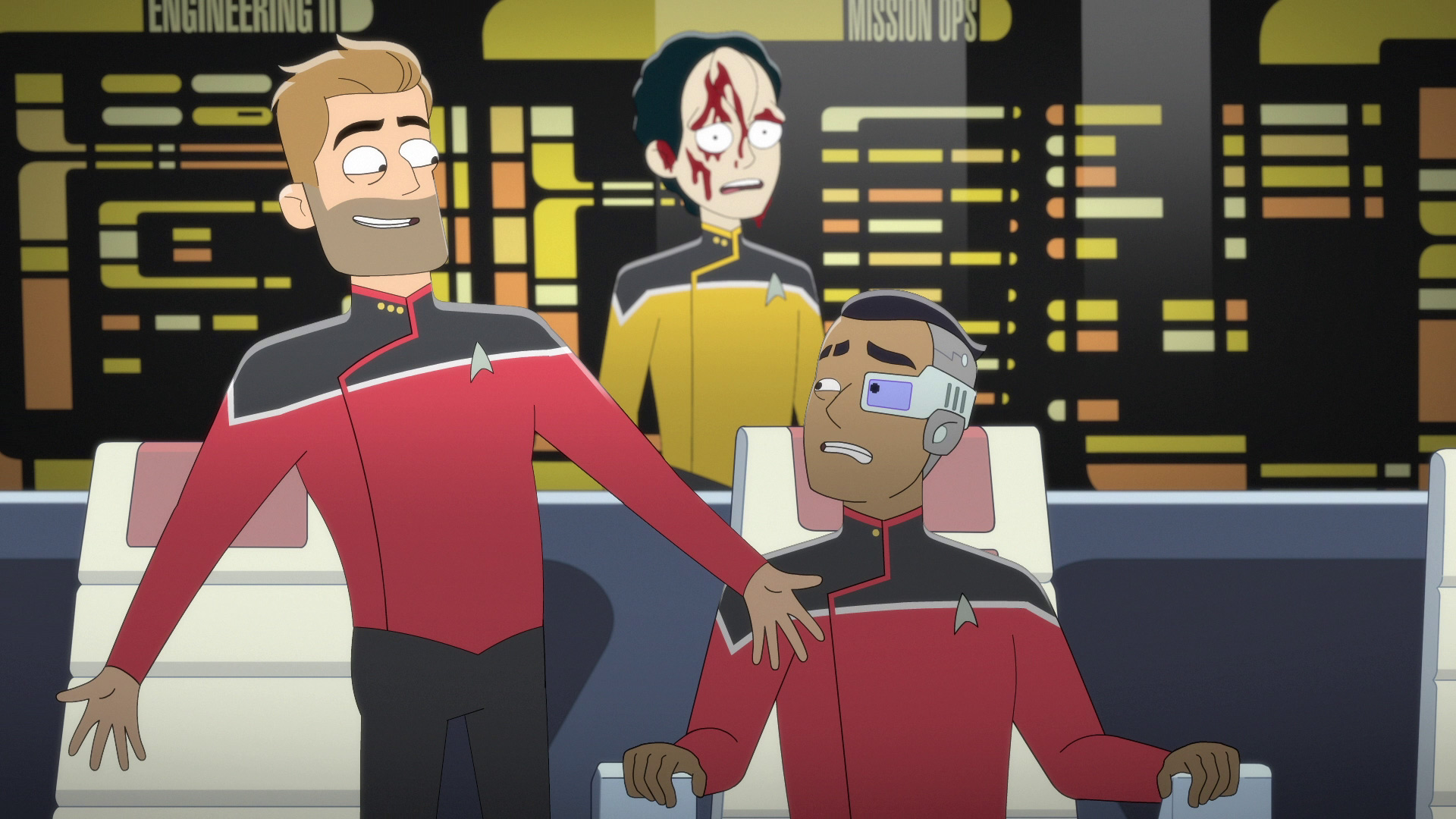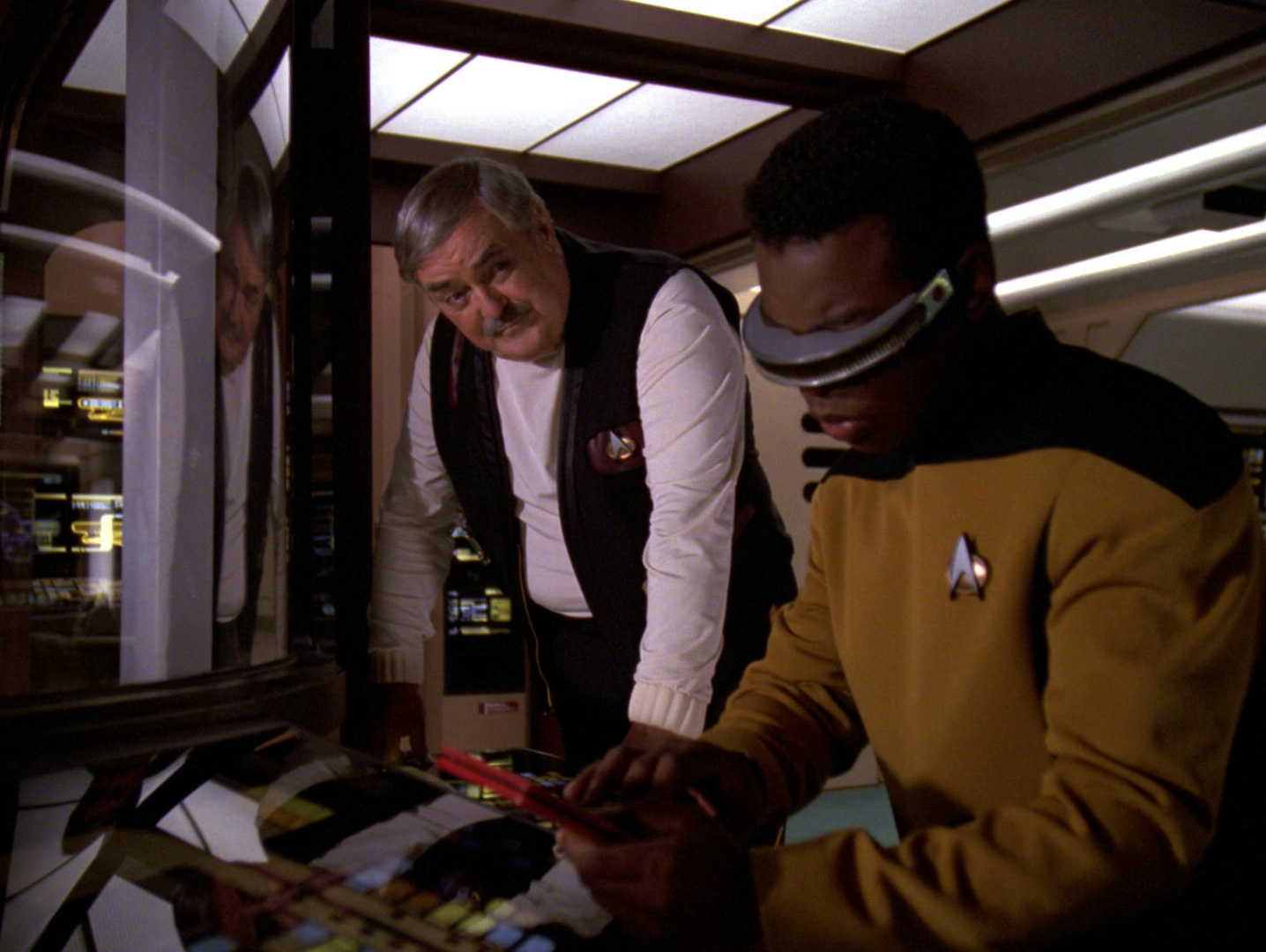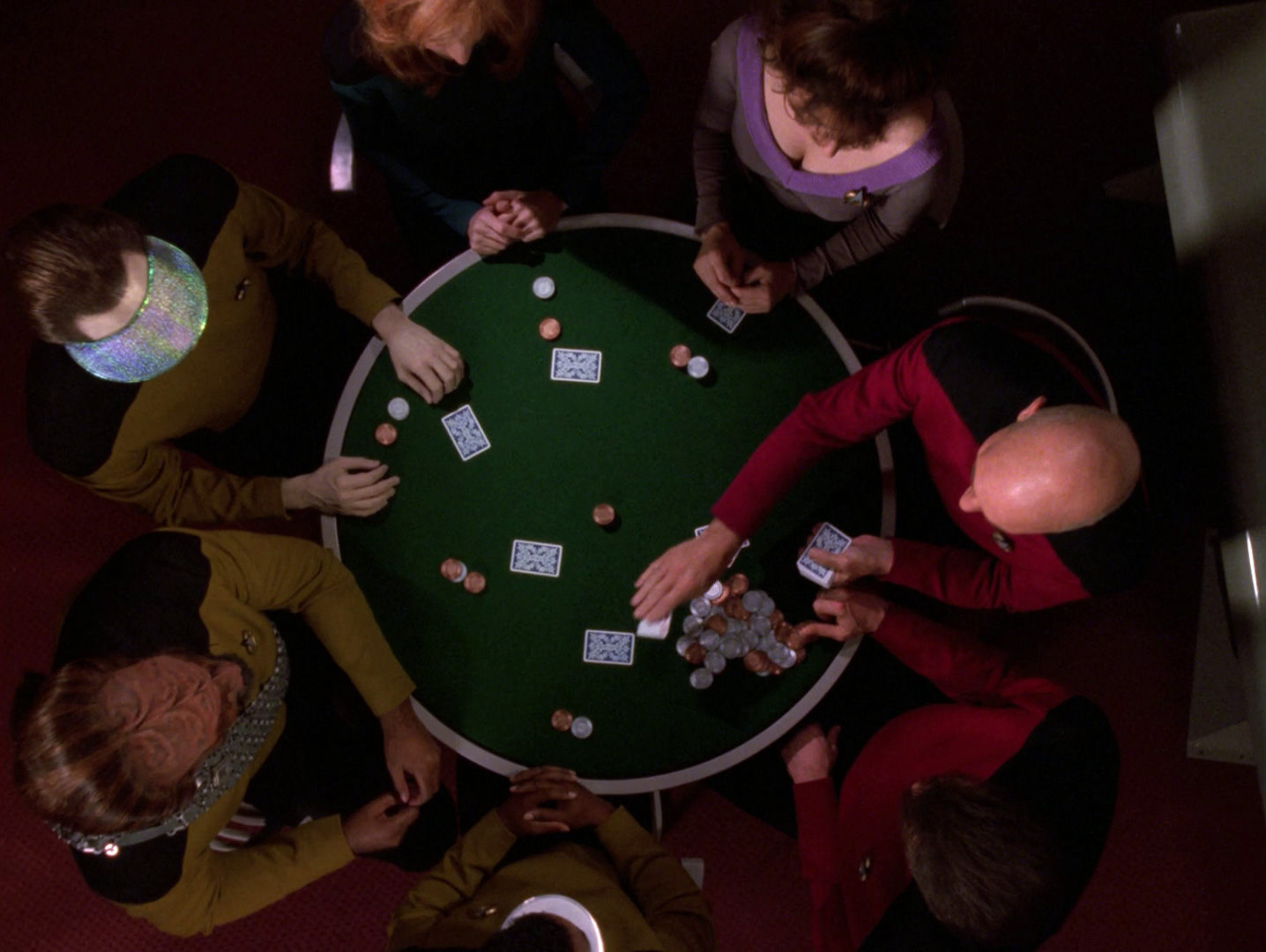
What can Star Trek teach us about creating great teams and support experiences?
Lessons from Star Trek that have driven success in my career
April 30, 2024 • 8 min read • General
Star Trek has often been referred to as, to use a crass term, 'competence porn'. It's a show about how a lot of talented people come together to solve complex solutions with minimal conflict involved (at least until Deep Space Nine).
While we don't live in the Federation world of fully automated luxury gay space communism the stories the franchise tells provide a lot of valuable lessons, whatever century you live in.
For those in Support, these are my current top 5:
For everyone: Support isn't just reactive, it's about defining purpose.

Episode: Subspace Rhapsody
Last year Star Trek (finally) made a musical. While prepping for an interview (I'm currently looking for work!) last week I found myself going back to the soundtrack for a bit of levity and motivation to break the pre-interview nerves.
I found the song Keep Us Connected resonating, specifically the chorus:
My whole life has been
Fix this and save you
I'll light the path
And keep us connected
Every person who has ever worked a customer facing job has felt as though their entire purpose has been to fix other peoples problems. It's rewarding work if you love tackling problems, but can sometimes feel like it's a thankless task. Especially in fast paced 'fire fighting' environments where one problem solved only means it's time to move onto the next one.
Support isn't just the 'in-between' though, it's about defining and shaping company communication to find the best methods and paths to solve problems, with the power of the customers voice behind you.
So the one-two hit of this song, followed by the triumphant finale We Are One:
It's my job to disrupt the chaos
Find a purpose for us all
Reminded me of what Support really represents. The power to keep everyone connected.
For Managers: Take chances on people

Episode: Parallax
This was the second episode of Star Trek: Voyager and the plot was driven by a conflict between the Captain (Janeway) and her newly appointed second in command (Chakotay). After their crews had merged, they were appointing people to the senior positions on the ship and disagreed on who to make the Chief Engineer, Janeway wanted somebody who had the training and qualifications to take the post (Carey) , whereas Chakotay wanted somebody who was 'rougher around the edges', but had proven themselves in the field (Torres).
The Starfleet officers on this ship have worked all their lives to earn their commissions. How am I supposed to ask them to accept a Maquis as their superior officer just because circumstances have forced us together?
You're asking them to accept me.
You're qualified. You're a graduate of the Academy, and you have Starfleet command experience.
In the end, Janeway gives Torres a chance. She rises to the occassion and saves the ship before going on to be the Chief Engineer for the rest of the show.
It's currently an employers market out there, junior positions are asking for 2+ years experience, new job ads on LinkedIn (especially for remote positions) are showing that hundreds have applied in a matter of hours. But I've found that the most loyal employees are often the ones that don't initially fit the mold on paper. If you choose somebody who ticks every box, what room do they have to grow in the role?
For Managers: Let team members explore interests to find their direction

Episode: Envoys
As Parallax is to Voyager, Envoys is to Lower Decks. It's second episode. The sub-plot in this episode see's the 'lower decks' engineer Rutherford explore careers in the other departments on the Cerritos. Each time he requests to be transferred he expects anger from the department head, only to be surprised when they all stand behind him and understand he's just trying to find his way.
After trying out each other department, he concludes that he wants to stay in Engineering.
This all sounds fun but not for me.
What?
My heart's in engineering. I'd like permission to leave the bear pack.
Rutherford, that is... outstanding! Got to be true to yourself!
Perceptions about support can often be the managers worst enemy when hiring for and building amazing teams.
An (almost) universal truth about Support is that frontline positions are seen as entry level. As a result, when support managers are growing their teams they may fear some candidates are just be trying to get their foot in the door before moving on to other areas of the company.
This can lead to the best people for the job being overlooked because they're 'over qualified'. The business and manager don't want to invest time in training somebody that they think will jump ship at the first opportunity.
Even if they are hired, the assumption that somebody is looking to move out of support can lead to tension within teams. A manager fearing a great hire or experienced team member is looking to move on could (and often does) lead to a belief that the best way to keep them is to block their progression.
Everyone has either experienced or heard of scenarios where the best candidate is seen as 'too valuable' in their current role. So looked over for opportunities or promotions that would take them away from their current responsibilities.
While I think there needs to be a balance (you shouldn't be able to apply for new roles while in probation/immediately after for example), you can often foster team loyalty by finding opportunities that align a team members own personal development goals with your management priorities.
In the past, this has been as simple as arranging 1-1 meetings with colleagues, or setting up shadowing opportunities in other domains. More often than not I found that team members returned from these experiences not only with more motivation, but wanting to spend more time in Support. Just like Rutherford!
For Everyone: Under promise, over deliver

Episode: Relics
In this episode, member of the Original Series Enterprise crew Scotty ends up being awoken in the future. He then gets into a heated argument with his 'modern day' counterpart (Geordi LaForge) about how to set expectations.
I told the Captain I'd have this analysis done in an hour.
How long will it really take?
An hour
You didn't tell him how long it would really take, did you?
Otherwise known as the Scotty Principle, it's an important lesson in giving time estimates based on the reasonable rather than best case scenario, to give yourself room for error.
This essential when you're communicating with customers. Customers love a company that beats it's own targets, they don't love companies that leave them hanging. Or that constantly delay.
For everyone: Don't let work define you.

Episode: All Good Things
In the TNG finale (spoiler warning), Picard is tasked by Q (a trickster god) to solve a threat to time by expanding his mind and horizons. While Q focuses on Picard's technical solution, the episode also sees Picard realise that his self-imposed distance from his crew contributes to them all drifting apart as they grow older and resent him to various extents.
As the episode ends, we see Picard join his teams weekly card game for the first time.
I should have done this a long time ago.
I've spoken before about the risks I see in keeping work life strictly professional, it's an easy mindset to fall into in fast paced support environments where there always seems to be one fire or another to put out.
Now, I'm not claiming that it's guaranteed that if you don't get to know your colleagues personally that they'll resent you in 40 years.
But we spend most of our active hours at work (if working full time) and certainly the majority of our attention. If you spent all of your time with somebody that held you at arms length, would you be inclined to like them?
Not only do building friendships at work help your team to work together and more productively, but the benefits extend beyond the workplace.
I moved up to Scotland a couple of years ago, and still regularly meet up with one of my first team members at Monzo!
Relationships that aren't just about work tend to stand the tests of time and enrich personal and professional lives.